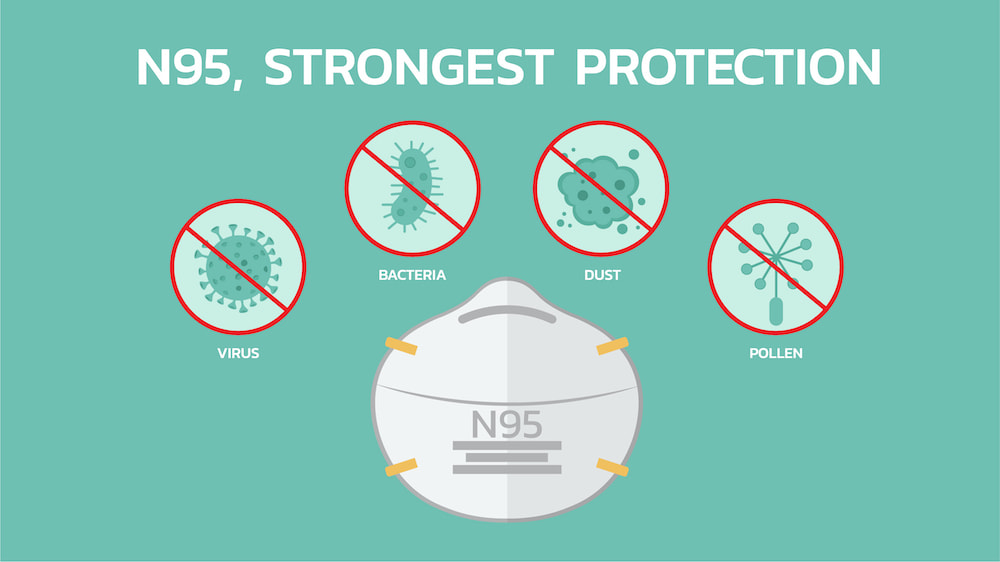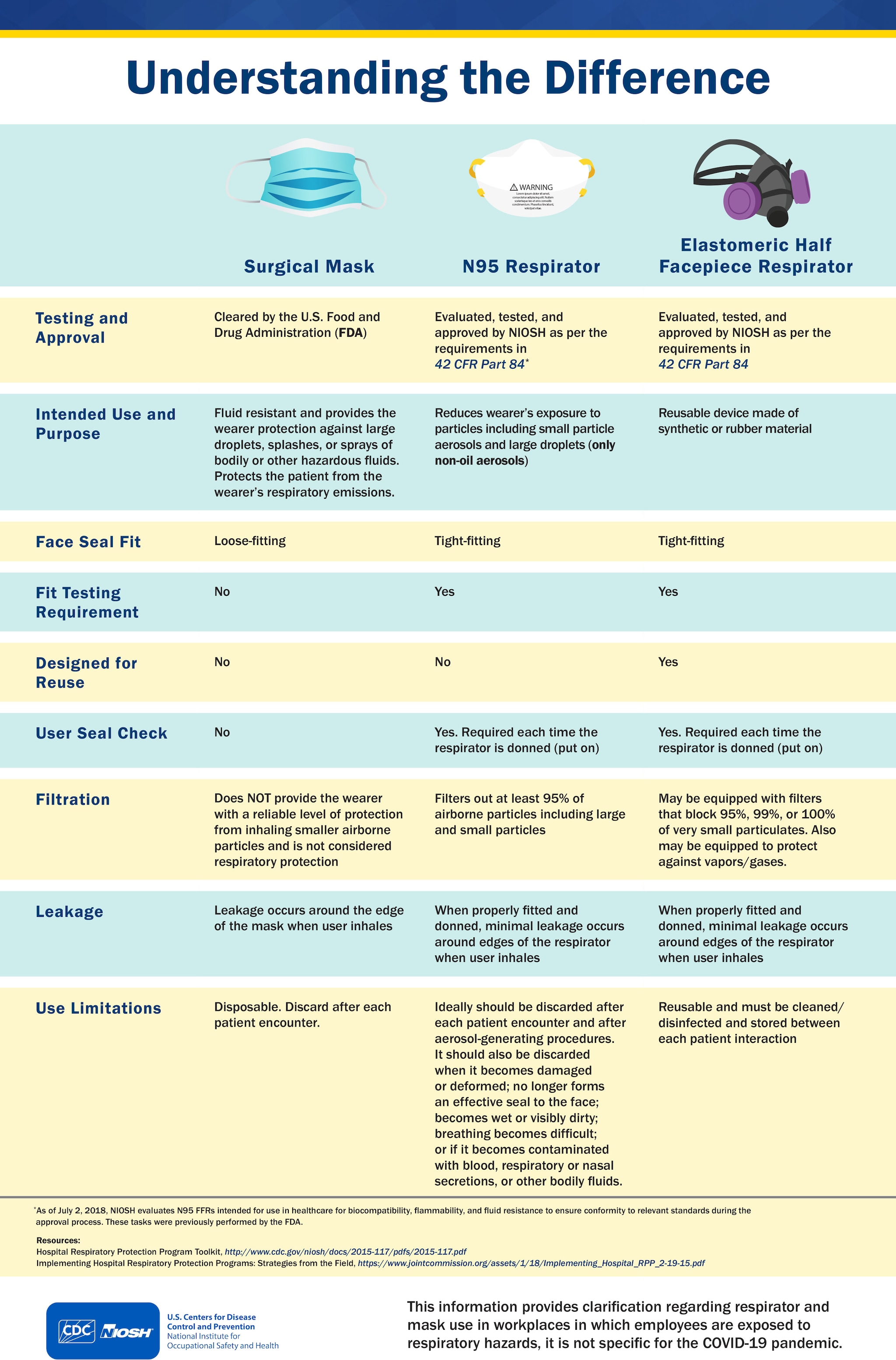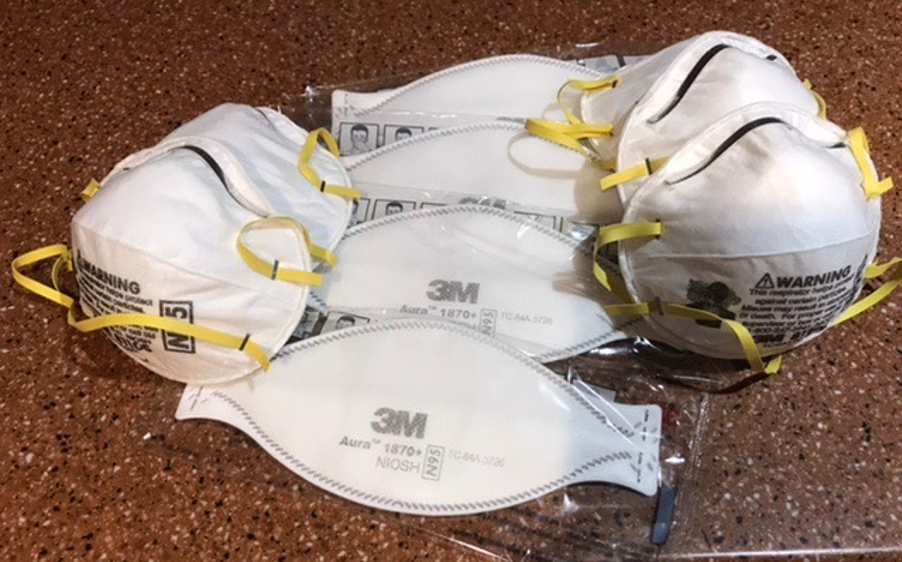This series is brought to you by N-Tech Consulting 's safety partner Riskall, and focuses on helping you stay safe during your transition back to work

Most health care providers have very specialized expertise in their respective fields. However, the technical aspects of personal protective equipment (PPE) ratings might not be one of them. Let’s explore one aspect of our PPE that have become a cornerstone of preventing the spread of COVID-19.

 Are there ratings on masks, and what do they mean?
Are there ratings on masks, and what do they mean?
Disposable N95 filtering face-piece respirators (commonly called “N95 respirators”) currently used in healthcare settings have been in limited supply. This is a time where misleading sales and scams surface.
NIOSH (National Institute for Occupational Safety and Health) sets the standards for masks. NIOSH is a division of the CDC. They set standards for filtration and efficiency of respirators, including N95s. They conduct the tests on masks to verify performance also. Masks that carry a NIOSH approval label indicate that the mask conforms to the standards set by NIOSH. If it does not have a NIOSH cert you may be wasting your money and risking your life.
Surgical style masks aren’t tested by NIOSH and instead gain their approval from the Food and Drug Administration (FDA). However, the FDA doesn’t have the stringent testing protocol like NIOSH.
There are many standards for masks to be used in different environments for different purposes. Surgical style masks, sometimes referred to as K95 or KN95 masks, provide limited protection from splashes, sprays and bodily fluids. They aren’t tight fitting, whereas N95 masks rely on a tight seal to the face for protection.

Examples of different N95 filtering face-piece respirators
While surgical style masks have been work successfully for decades and provide better protection than no mask at all, they don’t have a reliable rated protection factor. This is due to the loose fit and the ability for air, and aerosol particles, to bypass the mask and enter the airway.
N95 masks are rated to filter over 95% of airborne particles in the specified size range. In order to accomplish this, masks need to be sized appropriately, and users need to be fit tested to ensure a tight seal.
Prior to using N95 masks, OSHA requires that employees have medical approval and proper fit testing. Fit testing must be repeated annually. Once in use, masks must be properly worn, cared for, and kept clean. Look for more detailed information about mask use, cleaning and fit testing on our other blog posts here.
Ted Sommer is N-Tech Consulting's workplace safety partner from Riskill Inc., specializing in safety and risk management services.